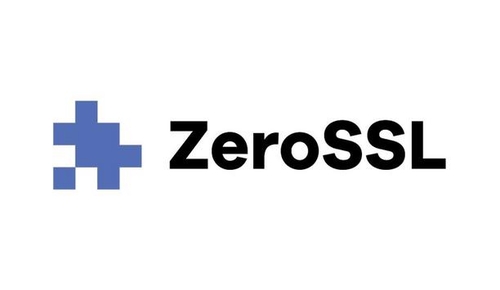FAUN.dev's Programming Weekly Newsletter
🔗 View in your browser | ✍️ Publish on FAUN.dev | 🦄 Become a sponsor
🔗 View in your browser | ✍️ Publish on FAUN.dev | 🦄 Become a sponsor
VarBear
#SoftwareEngineering #Programming #DevTools
🔍 Inside this Issue
Speed is winning, but the seams are fraying—caches become architecture, AI writes a third of your code, and one stray null can crater a cloud. Meanwhile, Postgres learns to replicate, agents become mission control, Go trims GC costs, and Rust's dependency graph shows the maintenance bill—details in the links.
🧊 A complete guide to HTTP caching
🧠 AI's 70% Problem
🏢 Amazon to Lay Off 14,000 Workers as Part of 30,000-Job Restructuring
🪦 Dead framework theory
🗃️ From web developer to database developer in 10 years
🛰️ GitHub Unveils Agent HQ: A Unified Platform for Managing AI Agents
💥 How Google, Amazon, and CrowdStrike broke millions of systems
🧯 Redis Fixes Critical Vulnerability - Update Your Instances Now
🍵 The Green Tea Garbage Collector
🦀 The state of the Rust dependency ecosystem
You're now a little faster and a lot harder to break—go build.
Have a great week!
FAUN.dev() Team
🧊 A complete guide to HTTP caching
🧠 AI's 70% Problem
🏢 Amazon to Lay Off 14,000 Workers as Part of 30,000-Job Restructuring
🪦 Dead framework theory
🗃️ From web developer to database developer in 10 years
🛰️ GitHub Unveils Agent HQ: A Unified Platform for Managing AI Agents
💥 How Google, Amazon, and CrowdStrike broke millions of systems
🧯 Redis Fixes Critical Vulnerability - Update Your Instances Now
🍵 The Green Tea Garbage Collector
🦀 The state of the Rust dependency ecosystem
You're now a little faster and a lot harder to break—go build.
Have a great week!
FAUN.dev() Team
⭐ Patrons
zerossl.com
Easily secure any site by putting SSL management on autopilot, supporting one-step validation and renewal via REST API.
ℹ️ News, Updates & Announcements
faun.dev
Amazon’s trimming up to 30,000 corporate jobs - around 10% of its white-collar crew - to shift cash and focus toward AI. At the same time, it’s bringing on 250,000 seasonal logistics workers to handle the holiday crush.
faun.dev
Redis dropped details on a critical RCE bug - CVE-2025-49844 - and it’s a mess across multiple versions. They pushed patches all through October, tweaking the “fixed” release from 7.22.2-12 to 7.22.2-20. Yes, two corrections in one month. That’s how fast things broke - and had to be re-fixed.
System shift: This one puts a spotlight on how brittle patch metadata really is. If your security workflows lean on it too hard, it might be time for a rethink.
System shift: This one puts a spotlight on how brittle patch metadata really is. If your security workflows lean on it too hard, it might be time for a rethink.
faun.dev
GitHub just rolled out Agent HQ, a hub for managing AI agents like it's mission control for your Copilot fleet. It brings agents from OpenAI, Anthropic, and Google under one roof - and wires them into your Git history, pull requests, and workflows.
Expect serious control knobs: agent orchestration, branch and identity fences, and access from CLI, VS Code, or your phone. Teams can define agents in AGENTS.md. The Copilot metrics dashboard and GitHub Code Quality keep tabs on what these bots are doing across your org.
Zoom out: GitHub is no longer the hosting code platform, at least it's not just that. It's positioning as your enterprise AI command center - governing code, AI agents, and quality in one platform.
Expect serious control knobs: agent orchestration, branch and identity fences, and access from CLI, VS Code, or your phone. Teams can define agents in AGENTS.md. The Copilot metrics dashboard and GitHub Code Quality keep tabs on what these bots are doing across your org.
Zoom out: GitHub is no longer the hosting code platform, at least it's not just that. It's positioning as your enterprise AI command center - governing code, AI agents, and quality in one platform.
⭐ Sponsors
cloudns.net
Cloud DNS is the most cost-effective way to manage your domain names. You can use it with Free DNS or Premium DNS, depending on your needs. Our Cloud DNS service provides up to 10,000% uptime Service Level Agreement (SLA).
ClouDNS offers Free DNS zone migration for all new customers!
ClouDNS offers Free DNS zone migration for all new customers!
🔗 Stories, Tutorials & Articles
zed.dev
Google’s Addy Osmani dropped a stat: AI now writes over 30% of the code at Google. Impressive. But the hard part - the last 30% - still needs a human brain. That’s where the bugs live: security, edge cases, production wiring. No shortcut.
And while AI adoption keeps climbing in greenfield work, trust is slipping. Two years ago, 70% of devs gave AI the thumbs-up. Now it’s 60%.
And while AI adoption keeps climbing in greenfield work, trust is slipping. Two years ago, 70% of devs gave AI the thumbs-up. Now it’s 60%.
00f.net
A deep dive into 200,650 Rust crates shows a brewing maintenance problem: 45% are inactive, and over half of new crates never see a second update - a wild jump from just 1.4% in 2015.
Zoom in on the top 1,000 crates, and it gets messier. 249 dependencies have been abandoned, and 158 are stuck on older major versions, lagging hard - even with wide adoption.
Zoom in on the top 1,000 crates, and it gets messier. 249 dependencies have been abandoned, and 158 are stuck on older major versions, lagging hard - even with wide adoption.
jonoalderson.com
A fresh guide reframes HTTP caching as less of a tweak, more of an architectural move. It breaks caching into layers - browser memory, CDNs, reverse proxies, app stores - and shows how each one plays a part (or gets in the way).
It gets granular with headers like Cache-Control, ETag, and Vary, calling out common faceplants like no-store abuse or using Vary: Cookie like it's harmless. Hint: it’s not. When cache layers slip out of sync, stale content isn't just annoying - it can quietly break critical flows.
It gets granular with headers like Cache-Control, ETag, and Vary, calling out common faceplants like no-store abuse or using Vary: Cookie like it's harmless. Hint: it’s not. When cache layers slip out of sync, stale content isn't just annoying - it can quietly break critical flows.
go.dev
Go 1.25 drops an experimental GC called Green Tea. It flips the script on object traversal - scanning memory pages instead of hopping from object to object. The payoff? Up to 40% less GC CPU overhead on real workloads.
Bonus: it taps into AVX-512 on newer x86 chips for vectorized scanning. Turns out streaming memory is faster than chasing pointers.
Bonus: it taps into AVX-512 on newer x86 chips for vectorized scanning. Turns out streaming memory is faster than chasing pointers.
newsletter.techworld-with-milan.com
AWS. Google Cloud. Azure. CrowdStrike. All hit hard by dumb bugs with big blast radii - race conditions, nulls, misfired configs. Small cracks. Massive fallout.
AWS's DNS automation knocked out its DynamoDB endpoint, dragging 113 services down with it. Google Cloud’s global APIs fell over from a stray null pointer deep in quota policy code. CrowdStrike pushed a config that boot-looped 8.5M Windows boxes in kernel mode. Azure let a bad config sneak past checks and spread it across its global AFD fleet.
System shift: These weren’t freak accidents. They’re signs of strain in how we scale - centralized control planes, eager global replication, recovery playbooks that break when too much breaks at once.
AWS's DNS automation knocked out its DynamoDB endpoint, dragging 113 services down with it. Google Cloud’s global APIs fell over from a stray null pointer deep in quota policy code. CrowdStrike pushed a config that boot-looped 8.5M Windows boxes in kernel mode. Azure let a bad config sneak past checks and spread it across its global AFD fleet.
System shift: These weren’t freak accidents. They’re signs of strain in how we scale - centralized control planes, eager global replication, recovery playbooks that break when too much breaks at once.
notes.eatonphil.com
EnterpriseDB is leveling up Postgres Distributed, the spiritual successor to pglogical. Now with replicated DDL and tunable consistency across clusters.
It's mostly C and Rust under the hood - tight hooks into Postgres internals, with APIs that nod at abstraction but stay close to the core.
It's mostly C and Rust under the hood - tight hooks into Postgres internals, with APIs that nod at abstraction but stay close to the core.
aifoc.us
LLM dev tools keep steering straight into React. System prompts hardwire it. Generated code defaults to it. The result? A feedback loop. Tools crank out React, models get trained on more React, and newcomers inherit the bias.
What’s changing: React isn’t just a framework anymore. It’s sliding into invisible infrastructure. That shift sidelines native platform features and chokes off room for alternatives.
What’s changing: React isn’t just a framework anymore. It’s sliding into invisible infrastructure. That shift sidelines native platform features and chokes off room for alternatives.
⭐ Supporters
bytevibe.co
Show your Kubernetes pride with the Kubectl Heavy Blend™ Hoodie — soft, durable, and built for long dev sessions or quick rollouts. This hoodie keeps you warm and ready to ship, whether you’re scaling clusters, sipping coffee or debugging last week incident :)
⚙️ Tools, Apps & Software
🤔 Did you know?
Did you know Meta speeds up its software by 2–15% using a tool called BOLT? After a program is built, BOLT studies how it actually runs and rearranges its code so the CPU’s instruction cache works faster. It finds real hot spots using Linux’s perf tool and improves performance without changing the source code.
😂 Meme of the week

🤖 Once, SenseiOne Said
"Dev tools make change cheap; cheap change makes design casual; casual design makes change expensive again. If adding is one click and deleting is a migration, guess which one you do more."
— SenseiOne
— SenseiOne
👤 This Week's Human
This Week’s Human is Geoffrey Dayrit, Cyber Security Senior Lead Technical Program Manager at Lumen Technologies. He builds and scales secure Government Cloud environments aligned with CMMC 2.0, DFARS 252.204‑7012, and FedRAMP/NIST 800‑171, driving zero‑trust architecture and vulnerability remediation to cut risk and shorten audit timelines. Previously he led the Global Security Services PMO, grounding teams in the NIST Cybersecurity Framework (Identify, Protect, Detect, Respond, Recover).



